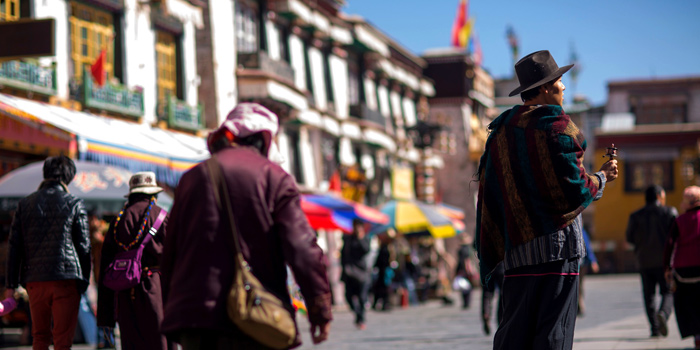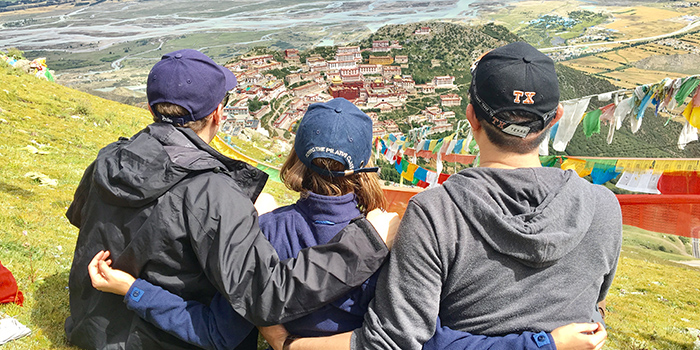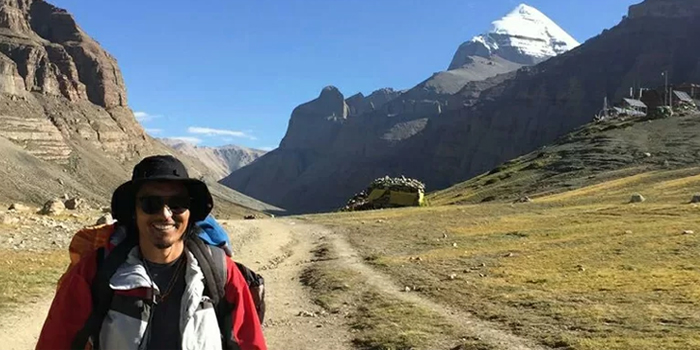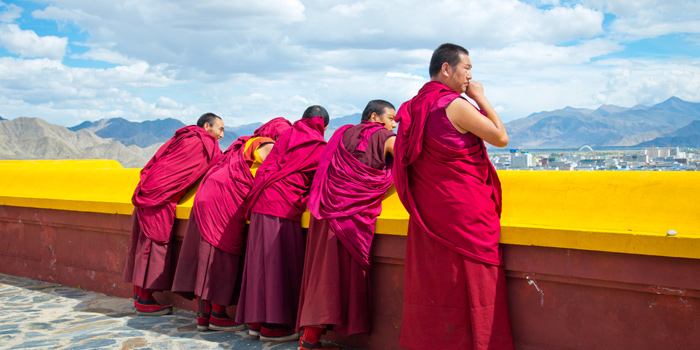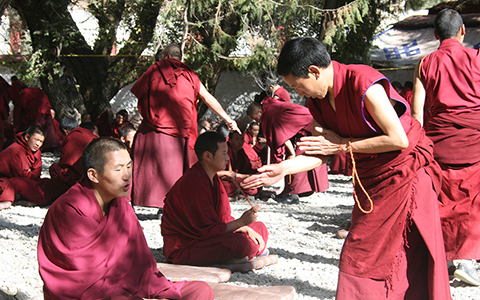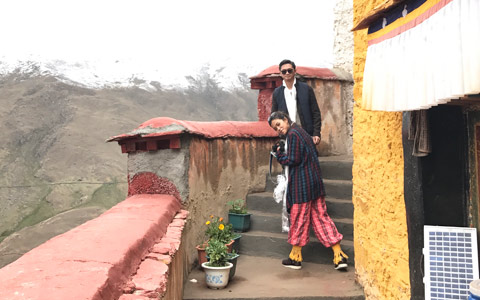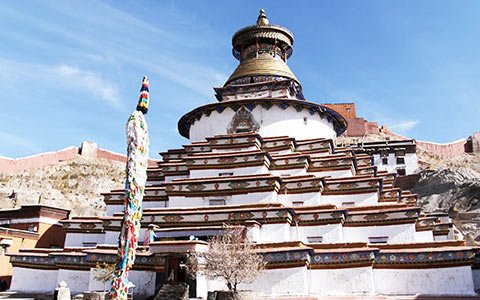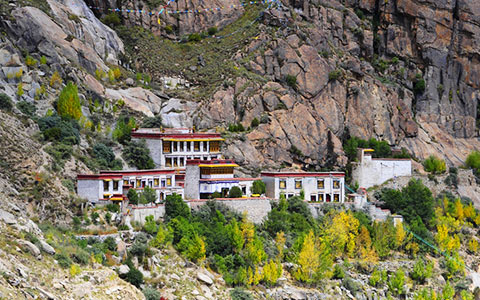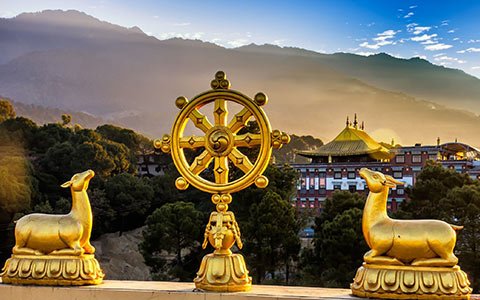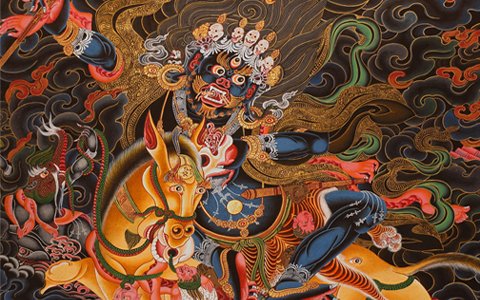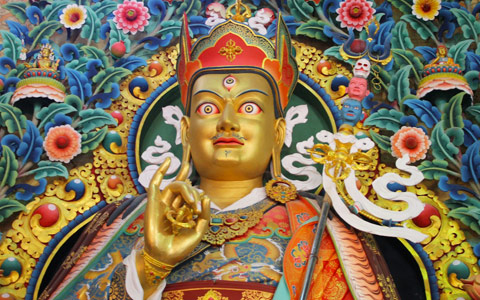8 Facts about the Religious Beliefs in Tibetan Buddhism
Tibetan Buddhism is varied, interesting, and rich in tradition. It has many deep philosophies and teachings, most of which come from highly enlightened monks of Tibetan Buddhism. The unwavering religious faith is the core element that defines the Tibetan people. The beliefs in Tibetan Buddhism are deeply ingrained in the Tibetans' daily life and Tibetan culture.
Here, we will take you through the 8 fascinating facts about the religious beliefs of Tibetan people, providing a deeper understanding of Tibetan Buddhism.
 Fact 1: Almost the Entire Population of Tibet Practice Tibetan Buddhism
Fact 1: Almost the Entire Population of Tibet Practice Tibetan Buddhism
 Fact 2: Buddhist Beliefs Run Through the Lives of Tibetans
Fact 2: Buddhist Beliefs Run Through the Lives of Tibetans
 Fact 3: Compassion of the Buddha is the Fundamental Value of Tibetan People
Fact 3: Compassion of the Buddha is the Fundamental Value of Tibetan People
 Fact 4: Buddhist Monasteries are the Center of Tibetan Life
Fact 4: Buddhist Monasteries are the Center of Tibetan Life
 Fact 5: Worshiping the Buddha Is a Part of Every Tibetan's Daily Life
Fact 5: Worshiping the Buddha Is a Part of Every Tibetan's Daily Life
 Fact 6: Tibetans Contribute a Portion of Their Wealth to Monasteries
Fact 6: Tibetans Contribute a Portion of Their Wealth to Monasteries
 Fact 8: Tibetans Live According to the Teachings of Buddha and Do Not Engage in Prohibited Actions
Fact 8: Tibetans Live According to the Teachings of Buddha and Do Not Engage in Prohibited Actions
Fact 1: Almost the Entire Population of Tibet Practice Tibetan Buddhism
Since the 7th century AD, when Guru Rinpoche introduced Buddhism to Tibet, it blended with the local Bon religion to form Tibetan Buddhism. Tibetan Buddhism has been widely practiced and upheld by the Tibetan people, and monks in Tibet have historically played roles as societal intellectuals.
Every Tibetan, from birth, is inherently a follower of Buddhism, and its teachings serve as a guide for their way of life, worldview, and values. Tibetan people are known for their simplicity, compassion, and deep faith. Tibetan Buddhism leads them on a lifelong journey of practicing the Dharma, shaping their behavior, approach to life, and perspectives on the world.
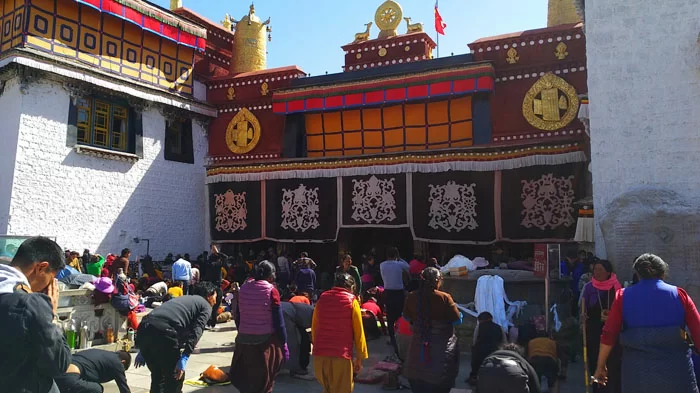 Every day, many Tibetan pilgrims prostrate in front of the Jokhang Temple.
Every day, many Tibetan pilgrims prostrate in front of the Jokhang Temple.
Tibetan Buddhism comprises sects like Gelug, Sakya, Nyingma, and Kagyu, each with unique practices. Despite differences, Tibetans from different sects believe that "abstain from all evil; do all that is good."
As the Tibetan people adhere to Tibetan Buddhism, embracing the belief in the sentience of all things, every mountain, river, and lake in Tibet is regarded as inherently sacred. When you visit Tibet, you’ll notice that each region has its own sacred mountains and holy lakes. This not only lets you enjoy the distinctive landscapes of Tibet but also gives you a profound insight into the local culture and beliefs.
Tibet, a land steeped in religious beliefs, offers a captivating history and culture for domestic and international visitors to explore. In Tibet, Buddhism is not just a religious belief; it's a way of life that permeates their entire existence, shaping their character and values, and endowing them with unique charisma.
Fact 2: Buddhist Beliefs Run Through the Lives of Tibetans
For Tibetans, Buddhism is not merely a religion; it is a fundamental element that permeates every stage of their lives, beginning from birth.
Tibetan families always go to monasteries during pregnancy and after childbirth. Mothers pray at monasteries for their child's devout past life, seeking blessings for a happy life. Newborns receive blessings and Buddhist initiations. On full moon days, families, adorned in finery, visit monasteries for blessings. Eminent monks often name children, incorporating meaningful elements. Families follow lamas' guidance for rituals, releases, and religious practices. If a child falls ill, lamas are summoned for blessings and Buddha imprints.
Moreover, major life events such as weddings and funerals are closely intertwined with Buddhist blessings and rituals. In particular, Tibetans often choose sky burials as their final rite, a ritual that emulates the compassion of the Buddha by feeding their bodies to vultures and carnivores, seen as a profound expression of faith and a gift to nature. Tibetans believe in the cycle of reincarnation and aspire to be reborn as humans or other sentient beings, aiming to better their spiritual practice and bestow blessings upon their loved ones while hoping for a brighter future.
Tibetans are committed to the Buddhist principles of karma and rebirth, ensuring that their virtuous actions in this life secure happiness and merit in the next. Buddhism is not just a religion; it is a part of Tibetan life, shaping their character, values, and way of life, guiding them throughout their entire existence, and infusing their lives with profound religious significance. Consequently, Tibetans often engage in virtuous acts and rarely commit wrongdoing.
Fact 3: Compassion of the Buddha is the Fundamental Value of Tibetan People
In Tibet, the values of Buddhism are not just a belief but the core and foundation of Tibetan life. These values deeply influence their cognition, judgment, and decision-making, serving as their behavioral code and way of life.
Foremost among these values is the reverence for all life. In Tibetan culture, all living beings are regarded as possessing spirituality, be it yaks, sheep, dogs, horses, or even tiny insects. They are considered to have equal intrinsic worth to humans. Many Tibetans avoid eating fish because they believe in the equality of life. Consuming a fish means taking multiple lives, especially when it comes to little fish, as hundreds may need to be sacrificed to meet one person's needs. Therefore, they prefer to consume yaks. An adult yak is sufficient to feed a whole family, a choice rooted in a profound understanding of the equality of life.
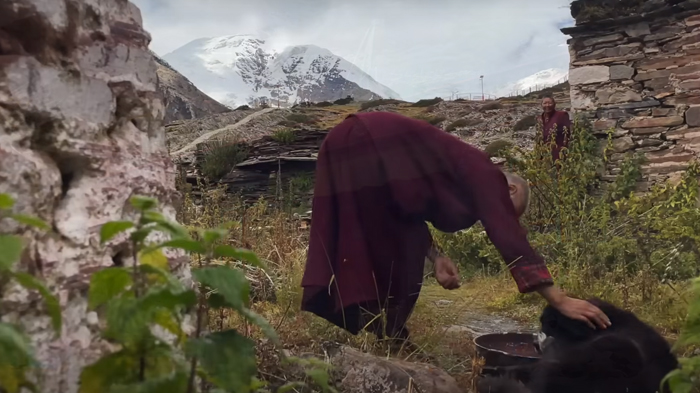 A compassionate Tibetan Nun is feeding a stray dog.
A compassionate Tibetan Nun is feeding a stray dog.
Compassion manifests in the daily actions of Tibetans, notably during the Shoton Festival. Monks refrain from going out during the transition from spring to summer, a crucial time for the growth of insects and small creatures, to avoid inadvertently causing harm. This practice, driven by compassionate hearts, limits outdoor activities to protect these young lives. Consequently, the Shoton Festival is celebrated as a manifestation of monk's compassion, marked by locals offering yogurt as a gesture of gratitude. Hence, it is also referred to as the Yogurt Festival, as ‘Sho’ means yogurt, and ‘Dun’ means banquet.
Compassion permeates various aspects of Tibetans’ daily lives. They regularly engage in acts of charity, aiding the impoverished, supporting monasteries, adopting stray animals, releasing fish destined for consumption, and helping neighbors in need. Even when traveling in Tibet, if tourists require assistance, Tibetans are quick to lend a helping hand.
Fact 4: Buddhist Monasteries are the Center of Tibetan Life
In Tibet, monasteries transcend their role as places of worship; they are integral to both community and personal life. Historically, especially during periods of poverty and hardship, Tibetan monasteries served as essential community managers, addressing various issues and providing support to residents.
In times of trouble, families instinctively turn to the monastery for assistance. Whether facing illness, marriage, orphanhood, or disputes, monks offer prayers, blessings, and mediation. Monasteries extend their support to elderly widows, and widowers, and actively participate in celebrations or blessings during harvests. Monasteries in Tibet not only serve a spiritual function but also act as social and community managers, overseeing almost every aspect of villagers' lives.
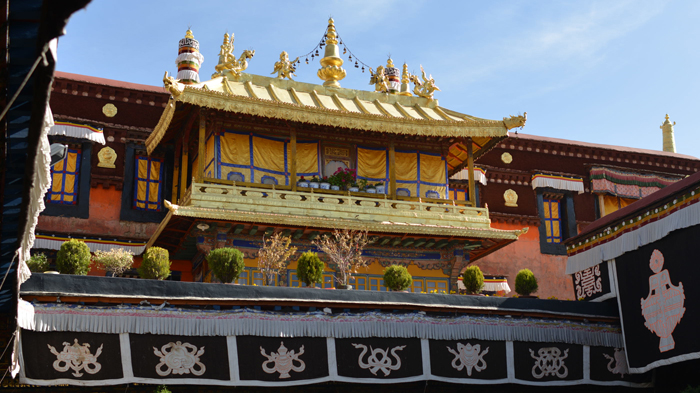 Jokhang Temple is the center of Tibetan Buddhism.
Jokhang Temple is the center of Tibetan Buddhism.
While modernization and economic development have improved living conditions in Tibet, monasteries continue to play a crucial role. They provide education, operate elderly homes, and support the less fortunate. Monks actively engage in disaster relief and contribute to local construction projects, exemplifying the seamless integration of spiritual and secular aspects of life.
Fact 5: Worshiping the Buddha Is a Part of Every Tibetan's Daily Life
Worshiping the Buddha is an integral part of every Tibetan's life. Every household has a meticulously decorated prayer room. Every morning and evening, the entire family gathers in front of the prayer room, offering clean water and lighting butter lamps to pray to the Buddha. Even in the tents of Tibetan nomads, you can find a prayer niche and an ever-burning butter lamp. Regardless of their location, Tibetans adhere to their daily worship of the Buddha.
Within the monastery, devout pilgrims engage in daily prostrations with profound reverence. Many bring yak butter to replenish the monastery's butter lamps. The majestic butter lamp house in front of the Jokhang Temple remains lit continuously. It is a daily ritual for Tibetans of all walks of life, from retirees to housewives, to visit monasteries, offering prayers and refilling the lamps. Their unwavering devotion persists, undeterred by adverse weather conditions.
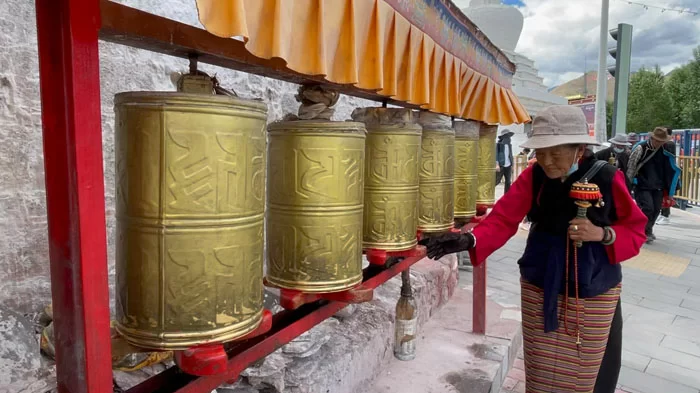 A Tibetan woman prays in Monastery, which is a lifelong daily routine for her.
A Tibetan woman prays in Monastery, which is a lifelong daily routine for her.
Moreover, in the vicinity of village monasteries, stupas (chortens) are commonly seen. The Kora around stupas has become a daily practice for rural inhabitants. In urban areas, people engage in koras at sites such as the Jokhang Temple, the Lingkhor (a circumambulatory route around certain Buddhist temples and sacred landmarks), or other monasteries. Some retirees even perform a daily kora, completing multiple rounds in a single day. It is evident that worshiping the Buddha has seamlessly integrated into Tibetan life, becoming an intrinsic part of their daily routines.
Fact 6: Tibetans Contribute a Portion of Their Wealth to Monasteries
In the past, Tibetans' main sources of income were agriculture and animal husbandry. Family wealth mainly came from farming and raising yaks, sheep, and other livestock. Due to the nomadic lifestyle, where carrying belongings was inconvenient, and the vital role of monasteries in addressing various aspects of life, these monasteries essentially became the community's homes and central hubs of wealth. People often donated their possessions to monasteries to support the monks and the Buddhist deities, and in times of need, they would receive assistance from the monasteries. Therefore, monasteries and people's lives, as well as wealth accumulation, were interdependent and inseparable.
Even though contemporary Tibetans have improved living conditions, reducing their reliance on monasteries, they continue to uphold the tradition of contributing a portion of their wealth to the monasteries. This tradition is especially strengthened when their families have received assistance from the monasteries. Importantly, monasteries are based on principles of equality and compassion, and they provide help not out of financial considerations but from a compassionate heart, treating everyone equally regardless of social status.
Fact 7: In the Hearts of Tibetans, Buddha Statues Are as Important as Parents, and Having a Child Become a Monk Is a Source of Pride
In old Tibet, families and monasteries shared a tight bond, with monks being seen almost as kin. When families faced issues, they'd turn to the revered monks in the monastery for help. Traditional Tibetan values took pride in having a family member ordained as a monk—a guardian who could protect the entire family. If a family had several sons, sending at least one to the monastery for ordination was a centuries-old custom.
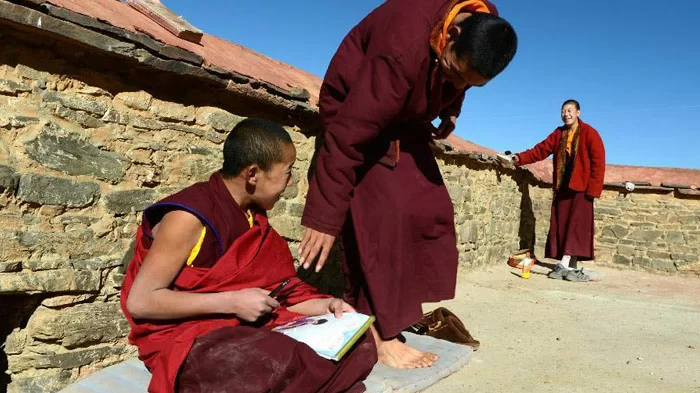 You may see Tibetan children monks while visiting a monastery during your trip.
You may see Tibetan children monks while visiting a monastery during your trip.
Even after a child became a monk, the ties with the family persisted strongly. The ordained child would wholeheartedly practice Buddhism, bringing blessings to the entire family, essentially engaging in spiritual practice on their behalf. Being ordained as a monk was viewed as a noble societal calling, and parents felt proud to choose this path for their children. The monk's role held sanctity, as they prayed for the well-being of all beings and the warding off of disasters, elevating this profession to a sacred status beyond any other in society.
Fact 8: Tibetans Live According to the Teachings of Buddha and Do Not Engage in Prohibited Actions
Tibetans' profound adherence to Buddhism significantly shapes their daily lives. Guided by the belief in karma, they meticulously avoid wrongdoing to prevent negative consequences and actively engage in virtuous acts to accumulate merit. This commitment results in a low crime rate in Tibet, ensuring it is safe to travel to Tibet.
In their daily practices, Tibetans prioritize non-violence and compassion, limiting meat consumption to yaks and sheep. Their innate compassion extends to all living creatures, and they feel genuine remorse for any unintended harm. This compassion is evident in their generosity, assisting neighbors, and readily helping tourists in Tibet.
Tibetans believe in the consequences of their actions, striving to accumulate merit for a happier future and enlightenment. While most follow Buddhist principles, deviations may occur. Those who commit misdeeds face societal and religious penalties, such as exclusion from blessings or a non-sky burial. Instead, they may receive an ordinary burial, with their souls believed to remain in the ground.
Conclusion
Through these 8 facts, you've learned about the strong religious beliefs of the Tibetan people and how they deeply influence their daily lives. Buddhism is central to their faith, guiding their actions with noble moral principles like compassion and karma. They aim to accumulate good deeds for a better future.
If you're curious about Tibet and want to experience its unique culture and beliefs, consider a Tibet tour. Besides beautiful landscapes, Tibet has ancient temples and a rich cultural heritage. You can meet locals, learn about their faith, and have an unforgettable journey, whether you're interested in religion, nature, or culture.

The Lhasa-born prodigy used to study business overseas, and got his Bachelor of Business in Nepal and India before moving back to his homeland. With pure passion for life and unlimited love for Tibet, Kunga started his guide career as early as 1997.
Responsible, considerate, and humorous, he devoted his entire life to guiding and serving international tourists traveling in Tibet. As a legendary Tibetan travel guru with 20-year pro guide experience. Currently, he is working in Tibet Vista as the Tour Operating Director. Whenever our clients run into trouble, he is your first call and will offer prompt support.
Related Articles & Posts
Most Popular Tibet Tour Packages
-

Lhasa - Gyantse - Shigatse - Everest Base Camp - Shigatse - Lhasa
USD939
View Details -
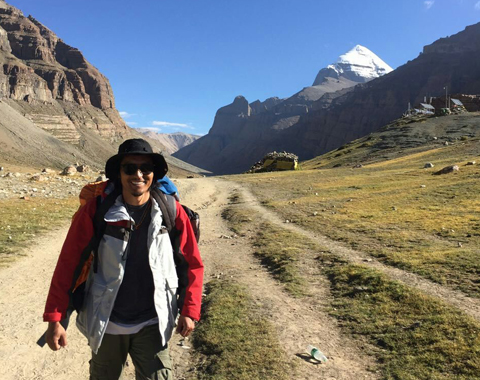
Lhasa - Gyantse - Shigatse - E.B.C - Saga - Kailash Trek - Darchen - Lake Manasarovar - Saga - Gyirong - Tingri - Lhasa
USD2059
View Details -

10 Days Lhasa to Everest Base Camp and Namtso Lake Small Group Tour
Lhasa - Gyantse - Shigatse - EBC - Shigatse - Lhasa - Namtso Lake - Damxung - Lhasa
USD1289
View Details -

8 Days Driving Across Himalaya Overland Adventure from Kathmandu to Lhasa
Kathmandu - Gyirong - Everest Base Camp - Tingri - Shigatse - Gyantse - Lhasa
USD1069
View Details -
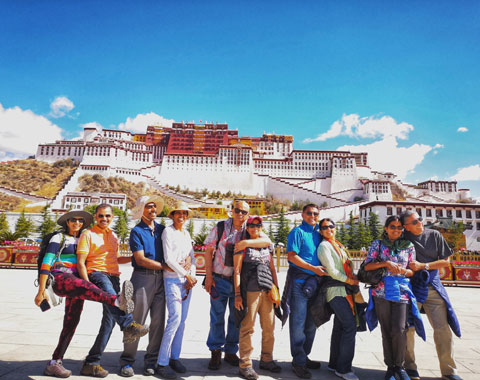
4 Days Lhasa Impression Small Group Tour: Explore the Heart of Tibet and Mingle with the Locals
Lhasa
USD509
View Details -
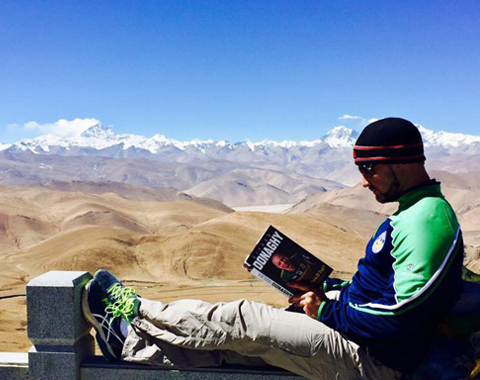
Lhasa - Gyantse - Shigatse - Everest Base Camp - Gyirong - Kathmandu
USD979
View Details -

Lhasa - Gyantse - Shigatse- Lhasa
USD799
View Details -
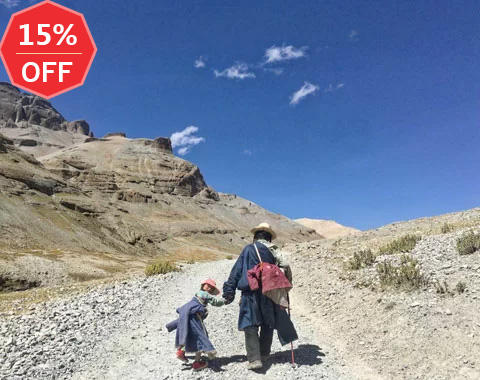
13 Day Lhasa, Mt. Everest, Mt. Kailash, Lake Manasarovar and Kathmandu Adventure Tour
Lhasa - Gyantse - Shigatse - EBC - Saga - Darchen - Kailash Trek - Darchen - Saga - Gyirong - Kathmandu
USD2059
View Details
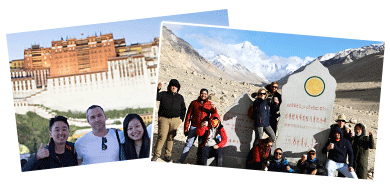

.jpg)



